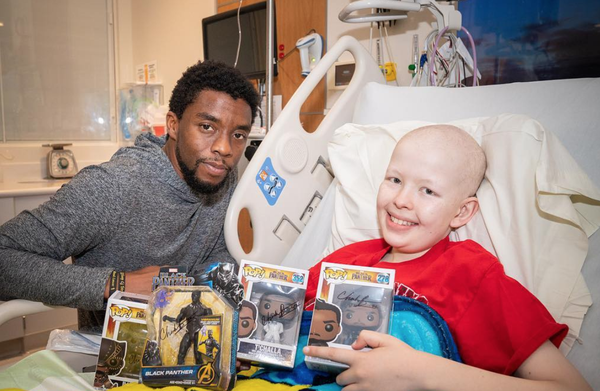October is Breast Cancer Awareness Month among other things. This type of cancer is one of the ones we Americans hear about the most and we have come to associate pink ribbons with this disease. When a woman says she has breast cancer, we assume it's of the breasts.
But what many people do not know or even contemplate is the history of breast cancer. It has been around since the beginning of time like any cancer but how have we come to have mammograms or breast implants? What did doctors and scientists have to do to make it treatable or preventable today?
What is important to know is that breast cancer is one of the oldest, if not the oldest, known cancers. It is mostly because of the fact that breast cancer has the most visible symptoms, namely the lumps. Ancient Egyptians were the first to note this cancer more than 3,500 years ago! It was described very accurately in papyri discovered by Edwin Smith and George Ebers.
How did ancient people understand breast cancer and treat it? Hippocrates, the famous Greek philosopher and doctor, described it as a humoral disease. He said that the body consists of four humors: blood, phlegm, yellow bile, and black bile, and that cancer was caused by an excess of black bile.
In A.D. 200 Galen, another Greek physician and philosopher, also suggested black bile as a cause of cancer but he also said that some tumors are more dangerous than others. He recommended treating it with medications like opium, castor oil, licorice, sulfur, and salves.
For centuries people believed Galen's theories on breast cancer. But in 1680, French physician Francois de la Boe Sylvius challenged the humoral theory of cancer. He hypothesized that cancer was not caused by black bile but from a chemical process that transformed lymphatic fluids from acidic to acrid. In the 1730's, another French physician, Claude-Deshais Gendron, also rejected the systemic theory and said that cancer developed when nerve and glandular tissue mixed with lymph vessels. These men disregarded bile and focused on anything lymph-related.
Other great thinkers theorized that sex had to do with breast cancer. Bernardino Ramazzini developed a hypothesis that breast cancer was due to lack of sex, since it was high in nuns, who obviously do not engage in sex. He said that without regular sexual activity, reproductive organs including breasts may decay and develop cancers. On the other hand, a researcher named Friedrich Hoffman said that women who had regular sex but still had cancer were engaging in "vigorous" sex, which led to lymphatic blockage.
Still other scientists and doctors blamed other factors for this type of cancer. Some blamed curdled milk, pus-filled inflammations of the breast, depressive mental disorders, childlessness, and sedentary lifestyle. Of course cutting back on or treating these issues did not solve anything.
It was awhile before doctors tried surgery. In 1757, Henri Le Dran was the first to suggest that surgical removal of a tumor could help treat breast cancer, as long as infected lymph nodes of the armpits were also removed. By the mid-nineteenth century, surgery was the available option for breast cancer and the development of antiseptic, anesthesia, and blood transfusion made survival after surgery more likely.
The first radical mastectomy was was introduced and performed by American doctor William Halstead of New York in 1882. This surgery removed breast, nodes in the armpits, and chest muscles in a single procedure to prevent the spread of the cancer. It became the standard procedure for breast cancer for the first few decades of the twentieth century. However, although it helped women survive longer, many did not choose it since it left them disfigured. Also, there were problems such as a deformed chest wall and/or swelling in the arm due to lymph node removal.
At the same time doctors around the world were also removing ovaries. This trend was started by Scottish surgeon George Beatson in 1895 after he discovered that removing the ovaries from a patient shrank her breast tumor. The reduction of the tumor by removing ovaries was due to the fact that estrogen from ovaries helped in growth of the tumor.
In 1955, a doctor named George Crile suggested that cancer was not localized but spread throughout the body. Bernard Fisher, another doctor, published results that proved that simple breast-conserving surgery followed by radiation or chemotherapy was just as effective as radical mastectomy. Nowadays radical mastectomies are no longer performed except in extreme circumstances.
The 1990's saw the development of hormone treatments, new surgeries, and biological therapies as well as mammography. Scientists isolated genes that cause breast cancer. By 1995, less than 10% of women with breast cancer had a mastectomy.
So there you have it. I believe people should be aware of how far treatment has come for breast cancer or any cancer. It is especially pertinent to me because my mom had breast cancer. Thankfully she did not have her breasts removed and she is in remission because doctors caught it early enough. If not for innovations in knowledge about cancer and medical innovations, doctors might still be using opium, licorice, or other absurd remedies to treat my mom. They might still attribute the cause of my mom's cancer to outrageous things like irregular sex or excess of black bile. My mom is doing extremely well now but the cancer could come back. However, I won't be scared because my mom won't be treated by ancient Greek or medieval physicians.





















